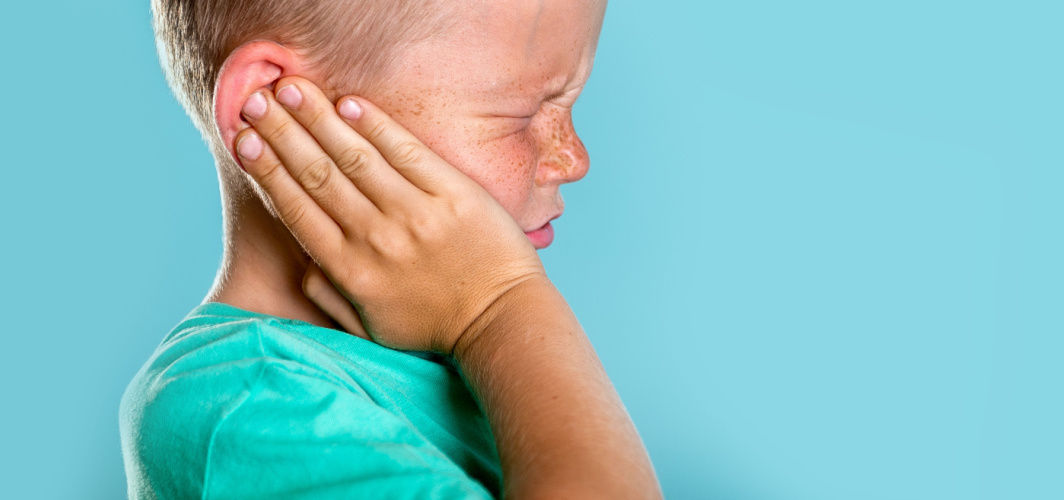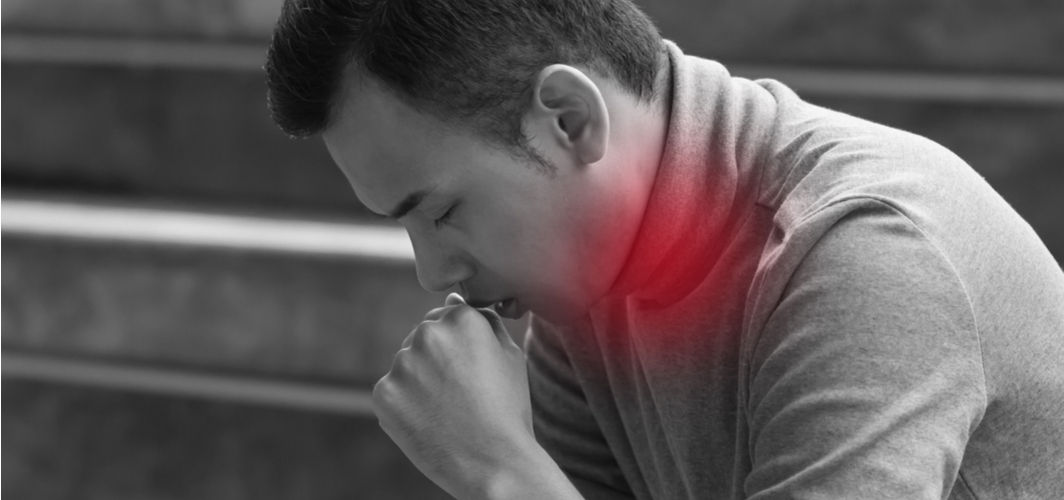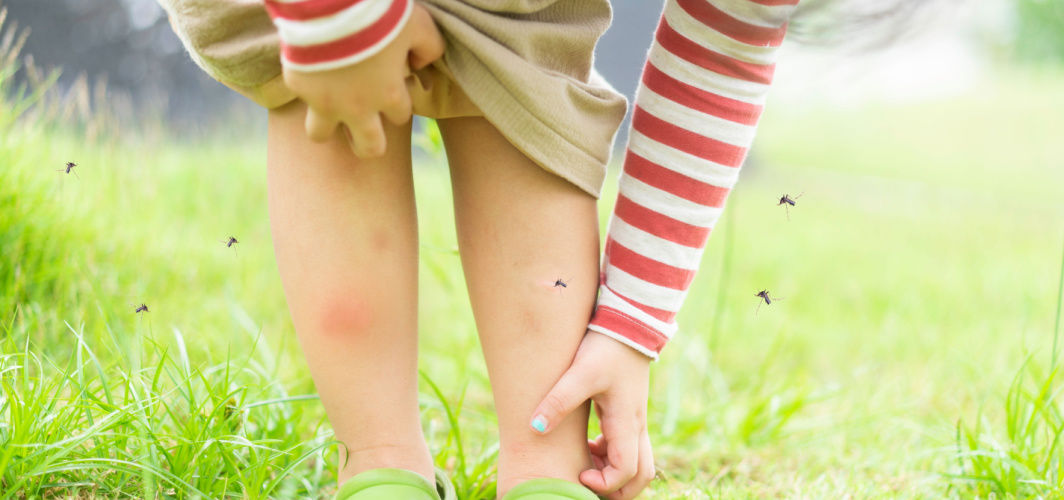General Health
How To Treat Ear Pain In Children
8 min read
By Apollo Pharmacy, Published on - 27 October 2023, Updated on - 11 October 2025
Share this article
0
1 like

Ear pain in children can be a distressing experience, not just for the child but also for parents or caregivers. In children, ear pain can have multiple causes, including ear infections, wax accumulation, or injury to the ear. Prompt treatment of ear pain is crucial to relieve the child's discomfort and prevent any potential complications. There are various ear infection treatment options available for ear pain, including pain reliever ear drops that provide relief from pain and inflammation. In this article, we will explore the causes of ear pain, discuss home remedies, and provide insight into treatments and preventative measures to ensure your child's ear health.
What are the Causes of Ear Pain in Children?
Ear pain in children can have various causes, and it's essential to identify and address the underlying issue to provide appropriate treatment. Some common causes of ear pain in children include:
1. Otitis Media
Middle ear infections (otitis media) result from Eustachian tube blockage, often due to colds or allergies, leading to bacterial or viral growth. The symptoms and signs include:
- Ear pain
- Difficulty in hearing
- Fever
- Irritability
- Fluid draining from the ear
- Trouble in sleeping
Ear infection treatment options may include antibiotics to clear the infection and reduce inflammation. Pain relief can be provided through over-the-counter drops for ear pain or by using a warm compress on the affected ear.
2. Otitis Externa (swimmer's ear)
Otitis externa, or swimmer's ear, is an infection of the outer ear canal. It typically occurs when water gets trapped in the ear, creating a moist environment that promotes bacterial growth. Symptoms occur in the ear canal that includes:
- Pain
- Redness
- Itching
- Swelling
You may also notice discharge and a feeling of fullness in the ear. Ear infection treatment involves both topical medications and preventive measures. Your doctor may prescribe antibiotics or antifungal ear drops to combat the infection.
3. Earwax Buildup
Excess wax in childs ear can cause discomfort and temporary hearing loss, often exacerbated by improper cleaning or narrow ear canals. Symptoms include:
- Ear ache
- Hearing problems
- Fullness in the ear
- Tinnitus
Using warm water or OTC drops can soften the wax in a childs ear. Avoid inserting objects into the ear to prevent complications.
4. Sinusitis
Sinusitis inflames the sinus cavities in the skull that connect the ears through Eustachian tubes. Blockages or infections in the sinuses can create ear pressure and discomfort. Symptoms of sinusitis include:
- Facial pain or pressure
- Headaches
- Congestion
- Runny nose
- Cough
- Fatigue
- Weakened sense of smell
Treatment options include using saline nasal sprays or a Neti pot. Medications such as decongestants and antihistamines may be prescribed.
Home Remedies for Relieving Ear Pain in Children
Ear pain in children can be distressing for both the child and the parents. Here are some effective home remedies for relieving ear pain at home:
1. Warm Compresses and Heating Pads
Applying a warm compress or heating pad to the affected ear can help reduce pain and inflammation. You can use a clean cloth soaked in warm water or a microwavable heating pad.
2. Over-the-Counter Pain Relievers
Ear infection treatment can be done using over-the-counter pain reliever ear drops that contain acetaminophen or ibuprofen. However, it is important to consult a doctor to determine the appropriate dosage for your child.
3. Natural Remedies
Traditionally, garlic oil and onion juice, both possessing antimicrobial properties, are used for ear infection treatment. Applying a few drops of warm garlic oil or fresh onion juice to the affected ear can provide relief.
4. Nasal Saline Drops
If the ear pain is caused by congestion from a cold or allergies, using nasal saline drops for ear pain or sprays can help open up the nasal passages and relieve pressure in the ears.
Medical Treatments for Ear Pain in Children
The appropriate medical treatment for ear pain in children depends on the underlying cause of the pain. It's important to consult a healthcare professional for an accurate diagnosis and to determine the most suitable treatment. Here are some common medical treatments for ear pain in children:
1. Antibiotics
When it comes to middle ear infection treatment or severe cases of ear pain in children, antibiotics such as amoxicillin are often prescribed to eliminate the bacterial infection.
2. Prescription Eardrops
Prescription ear drops for ear pain caused by infections or swimmer's ear are another ear infection treatment option in children. These drops contain antibiotics to combat the infection and provide relief from pain and inflammation.
3. Ear Tube Surgery
In cases of chronic ear infections, ear tube surgery may be recommended. It involves placing tiny tubes in the eardrums to improve ventilation, prevent fluid buildup, reduce infections, and ease pain.
Preventive Measures for Ear Pain in Children
Preventing ear pain in children involves various strategies to reduce the risk of ear infections and other common causes of ear discomfort. Here are some preventive measures:
1. Proper Hygiene Practices
Maintaining proper hygiene is crucial in preventing the occurrence of ear infections in children. Encourage your child to avoid touching their face and ears unnecessarily, as this can introduce germs into the ear canal.
2. Vaccination
Vaccination plays a vital role in preventing various diseases that can lead to ear infections. Ensure that your child receives all recommended vaccinations according to their age and schedule. Some vaccines, such as the pneumococcal vaccine and the flu vaccine, can help prevent bacterial and viral infections that commonly cause ear pain.
3. Avoiding Exposure to Smoke
Exposure to secondhand smoke can increase the risk of ear infections in children. The chemicals present in tobacco smoke can irritate the delicate tissues in the ear, making them more susceptible to infections. If you or anyone in your household smokes, creating a smoke-free environment for your child is essential.
4. Breastfeeding for Infants
Breastfeeding enhances infant immunity with antibodies, reducing ear infection risk. Aim for six months of exclusive breastfeeding for optimal protection and essential nutrients, promoting healthy growth.
When to Seek Medical Attention for Ear Pain in Children?
It's important to know when to seek medical attention for your child's ear pain. While some cases can be managed at home with simple remedies, certain situations require a visit to the doctor. Here are some signs that indicate it's time to seek medical help for ear infection treatment:
1. Persistent or Severe Pain
Suppose your child's ear pain persists or becomes severe despite trying home remedies such as warm compresses or over-the-counter pain reliever ear drops. In that case, it is advisable to consult a healthcare professional. They can assess the underlying cause of the pain and provide appropriate treatment.
2. Hearing Loss or Impaired Speech
If your child experiences hearing loss or has difficulty speaking alongside ear pain, it could be an indication of a more serious condition. These symptoms may suggest an infection or blockage that requires immediate attention from a medical expert.
3. Other Signs of a Serious Infection
If your child develops a high fever along with ear pain, it could be a sign of a serious bacterial infection. Other symptoms such as redness, swelling, or discharge from the ear should also not be ignored. Prompt medical evaluation is essential in such cases to prevent complications and ensure appropriate ear infection treatment.
Conclusion
In conclusion, treating ear pain in children involves identifying the cause, often due to ear infections or other issues. Consulting a doctor is crucial for an accurate diagnosis. Ear infection treatment may include antibiotics for infections, pain reliever ear drops, and warm compresses to alleviate discomfort. Surgery may sometimes be necessary to address underlying problems like fluid buildup or structural issues. It's vital to follow medical advice and ensure proper follow-up care to prevent complications and promote children's ear health.
FAQ
Q. Can I treat my child's ear pain at home?
You can provide comfort and relief for your child's ear pain at home by using warm compresses, over-the-counter pain reliever ear drops, and maintaining proper hygiene. However, consult a healthcare professional for persistent or severe ear pain to rule out underlying issues like an infection.
Q. Are there any specific ear drops for ear pain in children?
Yes, there are drops for ear pain that contain benzocaine or lidocaine which can help relieve ear pain in children. However, it is important to consult a doctor before using any ear drops for ear pain, as they may not be suitable for all cases.
Q. Can wax build-up cause ear pain in children?
Yes, wax in a child's ear can lead to ear pain in children. When excessive wax in a child's ear accumulates in the ear canal, it can cause a blockage and result in discomfort or even temporary hearing loss. A doctor can safely remove earwax if needed.
Q. Can over-the-counter pain relievers help with ear pain in children?
Over-the-counter drops for ear pain, that contain acetaminophen or ibuprofen, can be used to help alleviate mild to moderate ear pain in children. However, it is crucial to consult a doctor before giving any medication to your child.
Q. Are there any lifestyle factors that can help prevent ear pain in children?
To prevent ear pain in children, maintain good hygiene by keeping ears clean, avoiding excessive water exposure, and ensuring proper vaccination against common infections like flu.
General Health
Consult Top Ent Specialists
View AllLeave Comment
Recommended for you

General Health
Vocal Nodules and Remedies for Voice Hoarseness
Vocal nodules usually result from straining or overusing the voice, especially due to singing, shouting or talking loudly for long periods.

General Health
Some Blood Groups Are More Prone To Mosquito Bites. Know Which Ones!
Are you always more affected by mosquito bites than others in your vicinity? Your blood type could be the reason! Blood groups and several other factors determine how attractive you are to mosquitoes.
.jpg?tr=q-80)
General Health
Blood Pressure (BP) – Normal Range, Purpose, Procedure, And Results Interpretation
Understand Blood Pressure (BP): Learn about normal ranges, the purpose of BP measurement for heart health, the simple procedure, and how to interpret your systolic and diastolic readings.
Subscribe
Sign up for our free Health Library Daily Newsletter
Get doctor-approved health tips, news, and more.
Visual Stories

Science-backed Home Remedies for Burns and Blisters
Tap to continue exploring
Recommended for you

General Health
Vocal Nodules and Remedies for Voice Hoarseness
Vocal nodules usually result from straining or overusing the voice, especially due to singing, shouting or talking loudly for long periods.

General Health
Some Blood Groups Are More Prone To Mosquito Bites. Know Which Ones!
Are you always more affected by mosquito bites than others in your vicinity? Your blood type could be the reason! Blood groups and several other factors determine how attractive you are to mosquitoes.
.jpg?tr=q-80)
General Health
Blood Pressure (BP) – Normal Range, Purpose, Procedure, And Results Interpretation
Understand Blood Pressure (BP): Learn about normal ranges, the purpose of BP measurement for heart health, the simple procedure, and how to interpret your systolic and diastolic readings.



